2024–2025 Executive Committee
Officers
Sara R. Morris, President (2024–2026)
Morgan Tingley, President-Elect (2024–2026)
Sushma Reddy, Secretary (2022– )
Matthew Carling, Treasurer (2021– )
Judith Scarl, Executive Director and CEO (2021– )
Elective Councilors — Terms ending 2027
José Maria Cardoso da Silva
Anna Chalfoun
Jennifer Owen
Luis Sandoval
Elective Student Councilors — Term ending in 2026
Faiza Hafeez
We are excited to announce the winners of the 2024 American Ornithological Society (AOS) Council election. The AOS Council is the Society’s governing body, made up of member volunteers. The AOS Council is responsible for organizational governance: It establishes the direction and strategy of the AOS, makes high-level decisions about AOS’s priorities, oversees the sound financial management of AOS’s resources, and ensures legal and ethical integrity of the organization. Voting Councilors include four officers (President, President-Elect, Treasurer, and Secretary), twelve Elective Councilors, two Elective Student Councilors, and the three most recent Past Presidents.
Sara R. Morris will step into the AOS presidency immediately following the AOS 2024 meeting this fall in Estes Park, Colorado, after having served a two-year term as President-Elect. Morgan Tingley was elected as our new President-Elect, and will serve a two-year term before he becomes AOS president following the AOS Annual Meeting in 2026.
Sushma Reddy and Matt Carling ran unopposed and were re-elected to the offices of Secretary and Treasurer, respectively. This year, AOS members elected four new Elective Councilors who will officially take office immediately following the AOS 2024 Annual Meeting. José Maria Cardoso da Silva, Anna Chalfoun, Jennifer Owen, and Luis Sandoval were elected as Elective Councilors to serve three-year terms ending in 2027.
The AOS Council also includes two student representatives serving staggered two-year terms. Faiza Hafeez was elected by the AOS members to serve on Council from 2024–2026, joining Jacob Drucker, who began his term in 2023.
Congratulations to these Officers and Councilors! Read more below about our newly elected members of Council, including personal statements and answers to three important questions asked of each candidate in the 2024 election:
- Why are you interested in serving the American Ornithological Society in this leadership position?
- What key interests, experience, or skills would you bring to this position?
- How have your background and experiences prepared you to be effective in a professional scientific society that values fostering an inclusive ornithological community?
AOS Officers
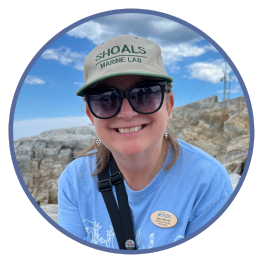
Sara R. Morris
John M. Kingsbury Executive Director of Shoals Marine Laboratory, jointly operated by Cornell University and the University of New Hampshire
Read Sara’s statement from the 2022 election.
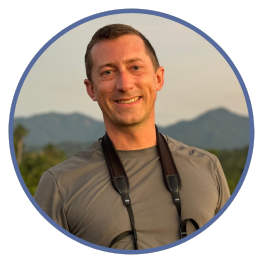
Morgan Tingley
Associate Professor, Department of Ecology and Evolutionary Biology, University of California, Los Angeles
Read Morgan’s statement.
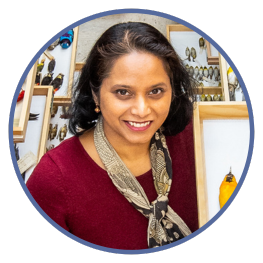
Sushma Reddy
Associate Professor, Breckenridge Chair of Ornithology, Curator of Birds, Bell Museum of Natural History
Read Sushma’s statement.
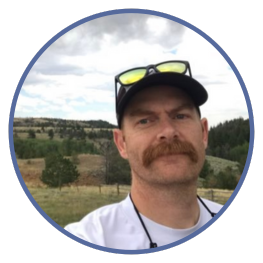
Matt Carling
Associate Professor, University of Wyoming
Read Matt’s statement.
AOS Elective Councilors (Terms ending in 2027)
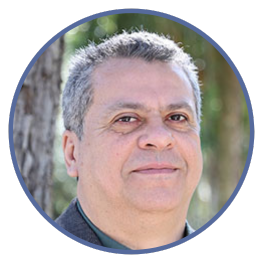
José Maria Cardoso da Silva
Professor, Department of Geography and Sustainable Development, University of Miami
Read José’s statement.
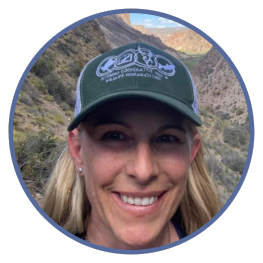
Anna Chalfoun
Assistant Unit Leader for Wildlife at the USGS Wyoming Cooperative Fish and Wildlife Unit; Associate Professor within the Department of Zoology and Physiology and the Program in Ecology and Evolution at the University of Wyoming
Read Anna’s statement.
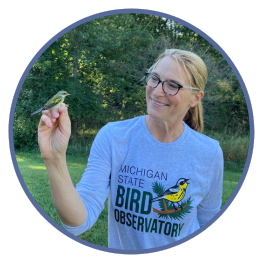
Jennifer Owen
Associate Professor and Associate Chair of Research, Michigan State University
Read Jennifer’s statement.
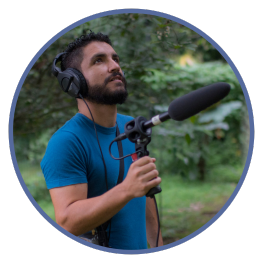
Luis Sandoval
Investigator and Professor of the Universidad de Costa Rica
Read Luis’s statement.
Student Representative (Term ending 2026)
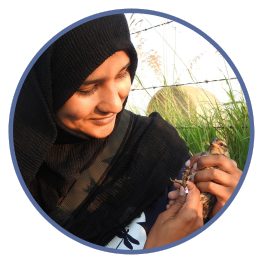
Faiza Hafeez
Ph.D. Student in Evolution, Ecology, and Behavior at the University of Nebraska-Lincoln
Read Faiza’s statement.
Q&A, Bios, and Candidate Statements
Morgan Tingley
Associate Professor, Department of Ecology and Evolutionary Biology, University of California, Los Angeles. Ph.D. 2011, University of California, Berkeley. Over 100 peer-reviewed publications, including in Ornithology, Ornithological Applications, Journal of Field Ornithology, Avian Ecology and Conservation, and Science, among others. Recipient of the James G. Cooper Early Professional Award, 2012. AOS Elective Member, 2014; AOS Fellow, 2018. Life member of AOS (first joined 2008). Editorial Board with Studies in Avian Biology, 2013–2020; Subject Editor with Ecography, 2013–present; Subject Editor with Ornithology, 2023–present; Board of Governors, Cooper Ornithological Society, 2015–2017; Transition Board, Cooper Ornithological Society, 2016–2017; Co-Chair of AOS Student Travel and Presentation Awards Committee, 2017–2022; Elected Councilor, AOS, 2020–2023. Attendee at 14 of 16 AOS conferences since 2008.
My research examines how species and communities of birds respond to anthropogenic environmental change, focusing primarily on how birds of temperate forests respond to climate change and shifting fire regimes. My research also centers on developing statistical and modeling methods to quantify these effects, whether using original field data, long-term monitoring, or crowdsourced datasets like eBird. I have supervised 4 M.S. and 9 Ph.D. students and 6 postdoctoral researchers. Prior to my appointment at UCLA, I was an Assistant Professor at the University of Connecticut, a David H. Smith Conservation Research Fellow at Princeton University, and a Postdoctoral Researcher with the Institute for Bird Populations, with whom I remain a Research Associate.
Why are you interested in serving the American Ornithological Society in this leadership position?
Change is tough. Change is scary. As a scientist whose professional career has focused on the impacts of a rapidly changing world, my research has demonstrated the resilience of birds in the face of unprecedented change. We are all living in this same world, where the challenge of leading a broad and diverse organization lies in navigating a remarkable number of often-opposing forces so that the society can weather changing times and emerge not just functioning, but stronger. Since my first ornithological conference over 15 years ago, AOS has undergone repeated changes, including a merger of societies, an expansion of membership, a professionalization of operations, and a transformation of journals. Through my years of service, I have developed a deep connection to the shared, collective mission of this Society and the inspiring group of ornithologists who also contribute their experience, passion, and time toward this mission. While I see the role of President(-elect) as one person as part of a strong team, I would be honored to lead AOS as we continue to chart a balance between honoring our esteemed ornithological history and reimagining a 21st-century academic society during this time of rapid change.
What key interests, experience, or skills would you bring to this position?
I have served, in some capacity, as part of shared ornithological governance for most of the past decade. I first participated in society leadership via the Cooper Society’s Board of Governors, during which I had the privilege of helping broker the historic and successful merger of the two societies. For two years, I then sat on Cooper’s “Transitional Committee,” participating in AOS council as a non-voting member. The next six years, I helped organize AOS conferences as co-chair of the Student Travel and Presentation Awards committee, where I worked to increase transparency and objectivity of both award processes and advocated for increased funding for students and underrepresented groups to attend and participate fully in conferences. Most recently (2020–2023), I served a 3-year term on AOS Council, helping pilot through fiscal challenges and opportunities, charting a more inclusive future, and navigating thorny topics (e.g., English bird naming). During my last year on Council, I assisted in crafting AOS’s strategic plan to assist, publish, and communicate impactful science while also supporting the career development of all ornithologists. While this roadmap points our way forward, organizations need leaders who can tackle the administrative, political, and logistical complexities inherent to modern governance. If elected, my years of experience with both the society and its diverse membership will help me be an effective leader of the broad team that steers AOS.
How have your background and experiences prepared you to be effective in a professional scientific society that values fostering an inclusive ornithological community?
Although I live openly as a gay man, “out” academics are still underrepresented in the sciences, including in ornithology. I remember fondly the welcoming impact of attending the first LGTBQ+ social at an AOS conference (in 2017), a small but important step toward visibility and community-building. Two-years later, I was part of a group that formed the Rainbow Lorikeets (now, an official AOS Affinity Group) and I performed as its first treasurer. The Rainbow Lorikeets are currently serving as a role-model for other AOS Affinity Groups – supported by a new BIO-LEAPS grant from NSF – helping build and support spaces for a broader, richer ornithological society. At the same time, I have benefitted from unknowable amounts of privilege in my life and career through simply being born a white man in America. Thus, having forged a career where I am simultaneously “in” and out, I have experienced the world through dual (and yet, obviously incomplete) perspectives. My strategy for fostering inclusivity begins with empathy, and is assisted by curiosity, transparency, and collaboration. If elected, I will continue to work to identify barriers that prevent ornithologists from any background from participating fully in AOS and to build coalitions to increase access, opportunity, and belonging.
Sushma Reddy
Associate Professor, Breckenridge Chair of Ornithology, Curator of Birds, Bell Museum of Natural History. Breckenridge Curator of Birds, Bell Museum of Natural History, Associate Professor, Department of Fisheries, Wildlife, Conservation Biology, University of Minnesota, Twin Cities. PhD, Columbia University in the City of New York. Member of AOS since 2002; Elective Member (2011); Fellow (2018), Chair, Meetings Coordination Committee (2020-2); Meeting Coordination Committee (2017-8); Local Organizing Committee (2013); Student Awards Committee (2020). Published in The Auk, Science, Proceedings of National Academy of Sciences, Molecular Phylogenetics and Evolution, Systematic Biology, BMC Evolutionary Biology, Current Zoology, Journal of Field Ornithology, Proceedings of the Royal Society B, Journal of Biogeography.
My research is centered on the evolutionary history of birds with a focus on diversification patterns in the eastern tropics and the early radiation of modern birds. As an educator, researcher and museum curator, I have a strong interest in promoting natural history collections as a key resource for understanding biodiversity and environmental change. My goals are to continue to support and promote research, education, and outreach activities to advance scientific understanding, public awareness, and conservation of biodiversity.
Why are you interested in serving the American Ornithological Society in this leadership position?
AOS has been the key professional organization that supported me throughout my career trajectory. I continue to be impressed with the variety of people from diverse backgrounds and interests who come together to promote the study and conservation of birds. There is no singular way to be an ornithologist – I believe this is the most important message we can send to create a more inclusive and supportive atmosphere. Diverse perspectives promote excellence and innovation in science and education. In recent years, as I interact with members of varied experiences and backgrounds, I have felt an increased sense of belonging and a responsibility to actively participate in service to AOS. It is often difficult, yet enormously rewarding, to engage in the collective efforts to bring together and facilitate connections across people and disciplines. I would like to continue my service by promoting activities that engage a broader community with a special focus of reaching out to underserved groups. I strongly believe in and work towards advancing the role of science and conservation of birds while building support for current and future ornithologists.
What key interests, experience, or skills would you bring to this position?
I believe my professional career as an ornithologist as well as my demonstrated skills in my current role serving as secretary of AOS and previous role of chair of the Meeting Coordination Committee make me well qualified for this leadership position. As an educator and researcher, I have a keen awareness of the importance of birds for teaching, learning, and caring about the natural world. In my daily activities, I strongly uphold and work towards the mission of the AOS – to advance science and conservation of birds and the scientists who study them. I am proud to help students navigate their scientific pursuits while also encouraging them in public engagement to communicate their work to varied audiences. I am proud to be part of the hard-working team whose efforts bring together our shared passion for birds, science, education, and nature.
How have your background and experiences prepared you to be effective in a professional scientific society that values fostering an inclusive ornithological community?
I will be honest here and state that my desire to serve is driven primarily by AOS’s commitment to diversity. Promoting science and nature is clearly important but can only be achieved by building a strong community that is diverse, equitable, inclusive, and accessible. I know from my own experiences and hearing others speak about theirs, professional scientific societies can feel impersonal and unapproachable, especially for people of marginalized ethnicities, backgrounds, and genders. Creating a more welcoming atmosphere needs to be an active endeavor. In my efforts for AOS, I strive towards this in multiple ways including by advocating for speakers from diverse backgrounds and experiences; promoting themes relevant to broad audiences; elevating the recognition of women, BIPOC, and early-career researchers; encouraging policies that broaden participation. We are all feeling the reverberations of a global pandemic and a worldwide reckoning of racial justice that has exposed deeply engrained inequities. Amid all this, we saw the power of birds to uplift, empower, and advance discourse. Now it’s our responsibility to harness this excitement to create a more inclusive and equitable environment for people from diverse backgrounds and abilities.
Matt Carling
Associate Professor, University of Wyoming. Associate Professor, Department of Zoology and Physiology, and Curator, Museum of Vertebrates, University of Wyoming. PhD, 2008, Louisiana State University, Department of Biology and Museum of Natural Science. AOU Member 2003, AOU Elective Member 2013, AOS Fellow 2020. Chair and then co-Chair of Student and Postdoc Travel Awards Committee, 2014 – 2021. Chair and then co-Chair of Student Presentation Awards Committee, 2014 – 2021. AOS Treasurer, 2021 – present Associate Editor for Evolution, 2016 – 2017. Rotating Program Officer, Evolutionary Processes, Division of Environmental Biology, National Science Foundation, 2017 – 2018; 2022 – 2024. Published in Auk, Condor, Journal of Field Ornithology, Western Birds, Nature, Nature Communications, Molecular Ecology, Evolution, BMC Evolutionary Biology, Ecology and Evolution, Conservation Genetics, Molecular Biology and Evolution, Molecular Phylogenetics and Evolution, and Genetics, among others.
My students and I focus on a variety of questions related to speciation and adaptation in birds. Much of this work focuses on using naturally-occurring hybrid zones to study the processes important in generating and maintaining reproductive isolation between closely-related bird species.
Why are you interested in serving the American Ornithological Society in this leadership position?
For me, serving as Treasurer is a great opportunity to help AOS grow in lots of exciting ways. Moving forward, I am energized by the opportunity to continue to help build and support programs that benefit the whole of AOS. This includes efforts to increase financial support for Ornithologists at all career stages and the on-going work to make AOS a more diverse and inclusive society. I would be honored to continue my service to AOS by remaining the Treasurer.
What key interests, experience, or skills would you bring to this position?
Well, having served as the Treasurer since August 2021, I think I’ve learned a great deal about the skills needed for this position. Certainly there’s more to learn, but that experience, along with previously serving as the co-chair of the student/postdoc travel award program and student presentation award program, has allowed me to work closely with AOS leadership and various AOS committees that will serve me well in my role as AOS Treasurer.
How have your background and experiences prepared you to be effective in a professional scientific society that values fostering an inclusive ornithological community?
From 2014 to 2021, I worked hard with co-chairs Morgan Tingley and Jen Walsh, to improve both the travel and presentation awards. This included working with AOS leadership to greatly increase the amount of funding available for travel awards (but we still need more!), streamlining the application processes to make them more transparent and objective, and ushering in more efficient judging mechanisms that have allowed us to greatly expand the number of students competing for presentation awards while still providing feedback to all presentation award competition participants. During these efforts, we engaged both the Diversity and Inclusion and the Student Affairs committees to ensure our policies and procedures would help promote a more diverse and inclusive AOS. Additionally, as Treasurer I have participated in presentations and workshops aimed at promoting diversity and inclusion within AOS.
José Maria Cardoso da Silva
Professor, Department of Geography and Sustainable Development, University of Miami. I am a professor at the Department of Geography and Sustainable Development at the University of Miami, Coral Gables, Florida, United States. I earned a BS in Biology from the Universidade Federal do Pará in 1986, followed by a MS in Ecology from the Universidade de Brasília in 1989, and a PhD from the University of Copenhagen in 1995. My research interests are ornithology, biogeography, conservation, and sustainable development. I have published over 150 scientific articles and book chapters in these areas and have been recognized with several awards throughout my career, including the Ralph W. Schreiber Conservation Award in 2019.
I have been a member of the AOS (American Ornithological Society) since 1993, becoming an Elective Member in 2006 and a Fellow in 2009. I have served on the Publication Awards Committee since 2022 and attended two AOS meetings in the last five years. Between 2001 and 2015, I held executive positions in conservation non-profit organizations. My specific ornithological interests include the systematics, biogeography, evolution, and conservation of Neotropical birds.
Why are you interested in serving the American Ornithological Society in this leadership position?
To support AOS’s vision of consolidating a broad and engaged ornithological community that advances the understanding and conservation of birds worldwide by fostering an inclusive professional environment while achieving excellence in governance and operations.
What key interests, experience, or skills would you bring to this position?
I have over 20 years of experience managing non-profit conservation organizations, academic departments, and large-scale global conservation initiatives. I believe this experience can be useful for supporting AOS’s management team.
How have your background and experiences prepared you to be effective in a professional scientific society that values fostering an inclusive ornithological community?
My interdisciplinary research agenda coupled with my extensive experience working at the intersection of science and policy worldwide for several decades, makes me well-prepared to contribute to the AOS’s efforts to provide exceptional services to its members and create opportunities for an inclusive and engaged global ornithological community.
Anna Chalfoun
Assistant Unit Leader for Wildlife at the USGS Wyoming Cooperative Fish and Wildlife Unit; Associate Professor within the Department of Zoology and Physiology and the Program in Ecology and Evolution at the University of Wyoming. I am the Assistant Unit Leader for Wildlife at the USGS Wyoming Cooperative Fish and Wildlife Unit, and an Associate Professor within the Department of Zoology and Physiology and the Program in Ecology and Evolution at the University of Wyoming. In my role as one of the co-Directors of the new WYOBIRD (Bird Initiative for Resilience and Diversity) initiative, I also contribute to student training efforts in ornithological field research, and outreach activities. I hold a B.A. in Biological Sciences from Smith College, an M.S. in Wildlife Science and Conservation Biology from the University of Missouri-Columbia where I worked under Dr. Frank Thompson III, and a Ph.D. in Wildlife Biology from the University of Montana as a student of Dr. Tom Martin. My research interests have centered around understanding the habitat preferences of birds and other non-game wildlife, the contexts under which such preferences are adaptive, and the consequences of human-induced habitat changes. I also nerd out on understanding the processes that influence the probability of nest predation.
The AOS has been my primary international scientific society since the merging of the Cooper Ornithological Society and AOU, and I was a Cooper and AOU member long before that. I was elected Fellow of the AOS in 2017, have attended over 15 AOU/COS/AOS conferences, chaired the search committee for the previous editor of Ornithological Applications, and currently serve as a Co-Chair of the Conservation Committee. I was President-Elect of the Cooper Society at the time of the merger, served on the first AOS Council, and was the recipient of both the Peter R. Stettenheim Service Award in 2018 and the Painton publication award in 2019. As a young scientist, I was a PECASE (Presidential Early Career Award for Scientists and Engineers) awardee. I have authored over 60 peer-reviewed scientific articles, most of which are focused on avian species.
Why are you interested in serving the American Ornithological Society in this leadership position?
The AOS has provided my students and me with numerous educational, professional, and leadership opportunities, for which I am very grateful. As a mid-career professional and long-term member, I believe that I would provide key perspective to the Council, while not losing sight of the ways in which the AOS could be even more impactful. Now more than ever, the importance of facilitating awareness and rigorous scientific understanding pertaining to the population declines of birds across the Americas and worldwide, for example, cannot be over-stated. We currently face other challenges, including how to more effectively include and serve ornithologists south of the U.S. border, and resolving strong differences in opinion about the proposed changes to eponymous bird names. From a personal standpoint, the AOS flock is rife with people whom I respect greatly, many of whom have become lifelong friends. Continuing to contribute to the society in whatever way that I can is therefore appealing.
What key interests, experience, or skills would you bring to this position?
As outlined above, I have considerable previous leadership experience both related to the former Cooper Society and the AOS. I therefore have a proven track record of dedication to the society. I believe I could provide unique insights from those experiences while at the same time maintaining an eye towards the future. In addition to helping to ensure that our society continues to provide key services to our members such as great annual conferences and student/young professional support, I have a couple of other more specific interests. The first is to explore how AOS can play an even larger leadership and service role when it comes to science pertaining to the steep and extensive declines of the American avifauna. Second, given the society’s strong interest in DEI, I would like us to explore ways in which we can better support and include ornithological students and professionals in countries with fewer opportunities including Latin America and the Caribbean.
How have your background and experiences prepared you to be effective in a professional scientific society that values fostering an inclusive ornithological community?
I have a very specific example to which I can point to demonstrate the active role I have played related to inclusivity. As the Co-Chair of the AOS Conservation Committee since 2019, I was one of the founders of the AOS Latin American and Caribbean Conservation Research Grants program. Our rationale in pushing for this program was the combined need for quality science throughout the Americas focused on avian conservation challenges, and the relative paucity of funding for ornithologists in countries outside of the U.S. and Canada. Indeed, two of the primary foci that emerged from the recent strategic planning efforts was continuing to foster a diverse society, and supporting avian conservation research. Thus far, we have provided four small grants to early-career Latin American researchers, but received far more deserving requests than we could accommodate. We look forward to continuing to grow this important initiative, potentially by partnering with other organizations and societies.
Jen C. Owen
Associate Professor and Associate Chair of Research, Michigan State University. Associate Professor and Associate Chair of Research, Department of Fisheries and Wildlife, Michigan State University (MSU). Ph.D. 2004, University of Southern Mississippi, B.S. University of Montana. Published in Proceedings of the Royal Society B: Biological Sciences, Ornithology, Ornithological Applications, Journal of General Virology, Emerging Microbes and Infections, Journal of Field Ornithology, Frontiers in Microbiology, Ecohealth, Methods in Ecology and Evolution, Behavioral Ecology and Sociobiology, among others. Co-editor of Infectious Disease Ecology of Wild Birds. AOU member since 1998, AOU Elective Member, 2008; AOU Fellow, 2014. Attended ~25 AOU/AOS/NAOC meetings. Service to the society: AOS Investing Trustees Committee (Chair, 2021–present, member 2020–2021), AOS Finance Committee (2021–present), AOS Audit Committee (2022–present), Local Organizing Committee for the 2017 joint meeting of the American Ornithological Society and the Society of Canadian Ornithologists (Chair, 2013–2017), COS Board Member (2015–2016), AOU Membership Taskforce Committee (Chair, 2014–2016), AOS Meeting Coordination Committee (2013–2019), AOU Council Member (2011–2013), ad hoc Committee on AOU Membership (Chair, 2008–2011), AOU Early Professional Committee (Chair, 2006–2016; member, 2004 – 2005), ad hoc Committee on AOU Governance (2003–2004), and AOU Student Affairs Committee (2003–2004). Served as Editor for Condor: Ornithological Applications (2013–2014), Associate Editor for the Auk (2010–2013).
My research program is interdisciplinary and addresses issues at the interface of wild bird and ecosystem health, with focal areas in disease ecology, ecoimmunology, and migration stopover ecology.
Why are you interested in serving the American Ornithological Society in this leadership position?
The AOS (formerly the AOU) has been my professional home society since I attended my first meeting at Cornell University in 1998. My connection and dedication to the Society strengthened when I began to take on service roles. I have served the Society as described below in myriad capacities for almost 20 years and my dedication to the Society has strengthened due to all the efforts the Society has made (for which I have been lucky to be a part of) to become a more inclusive and welcoming society for a broader community while still hosting exceptional scientific meetings and supporting young professionals. I am dedicated to the Society’s success and how it can best serve current and future members and ornithological science. It is a particularly exciting time to be a member of Council to help with implementing the new Strategic Plan, that has priorities that I am passionate about. Beyond my experience serving the AOS, my other leadership experience that is relevant is currently leading the implementation of a strategic plan for an ecological field station. This experience helps me understand that the most important work of a successful strategic plan is in the implementation and making sure we as a society meet the goals laid out in the plan.
What key interests, experience, or skills would you bring to this position?
Except for a two-year break after organizing the 2017 annual meeting, I have served the Society continuously since I was a Ph.D. student in 2003, and across all my career stages to date. My experience serving the AOU/AOS has ranged from being a member of the student affairs committee when it first started in 2003, to Chairing the local organizing committee for the 2017 joint meeting, to my current role as the Chair of the Investing Trustees Committee. I have a broad understanding of the Society’s governance and the complexity of what it takes to meet our mission. I also understand the privilege of serving the Society. I understand the importance and value of engaging students and early career professionals in society governance early on. For that to happen it is essential that the established members of the society create those opportunities. My over 20 years of service all started because Dr. Edward (Jed) Burtt invited me to be on a committee to review the AOU Bylaws in 2003. Having an established member of the Society invite me to participate was a turning point; it created an avenue for me to become more involved in and support the Society. I know that the professional connections and friendships that I have made have been the most important of my career. I want to do what I can to reach out and help connect students and early career professionals to the Society.
How have your background and experiences prepared you to be effective in a professional scientific society that values fostering an inclusive ornithological community?
I have the perspective of serving the Society as a graduate student, early professional, and now as an established professional. I have observed and been an active participant in the AOS’s efforts to evaluate how it serves its members and ways it may better serve members. Part of that was creating more transparent processes for nominations and awards and fostering more welcoming and inclusive meetings. For the 2017 meeting, we made it a priority to host a welcoming and inclusive meeting that was affordable and accessible. With the coordination between the local organizing committee, AOS leadership, and AOS members we were able to achieve most of our goals, recognizing that we can always do more.
I recognize that we each come to our roles with unique experiences and perspectives, and many perspectives that may not be represented on the governing body of the Society at any point in time. As a Council member I will serve with humility and the recognition that we as a governing body serve a broader and diverse membership. I see my role in making sure to reach out to and listen to those that may not have a seat at the table so their voices and perspectives are considered during the decision-making processes.
Also, I am director of a bird banding station that with the contributions of an amazing team has gained a reputation for being welcoming and accessible to people of all backgrounds, identities, and fosters curiosity and learning about the ecology of migratory birds.
Luis Sandoval
Investigator and Professor of the Universidad de Costa Rica. I have been an investigator and professor of the Universidad de Costa Rica since 2014, where I am the principal investigator of Laboratorio de Ecología y Comunicación Animal, at the Biology School and Ornithology curator at Centro de Investigación en Biodiversidad y Ecología Tropical. I conducted my bachelor and Master degree at the Universidad de Costa Rica, where study the Spot-bellied Bobwhite male singing behavior. I conducted my Ph.D. at University of Windsor, Canada studying the main causes of vocal divergence in a tropical bird species. I published 125 scientific peer review papers on Neotropical bird ecology, behaviors, evolution, and natural history. My labor as student and professional has been recognized with the following awards: Young investigator award Ned K. Jonhson-AOS; The World Academy of Sciences & Consejo Nacional para Investigaciones Científicas y Tecnológicas Award for Young Scientifics in Biology (Costa Rica); and Award for excellence research, scholarship, and creative activity. Outstanding graduate student, University of Windsor, Canada.
I have been part of the AOS since 2011, where I collaborate multiple times reviewing students grant proposals, travel grants, and students’ presentations in conferences. As part of the AOS I am a member of the Bylaw and Research Grants committees, Elective Member since 2018, and AOS Fellow since 2023. I have participated in almost all AOS annual meetings since 2012. I am an Associate Editor in both journals of the AOS. I am interested broadly in the study of urban development’s effect on birds’ communication, behavior, and evolution of Neotropical species. As a biologist working in the tropics, I believe strongly in integrating descriptive (natural history) works with an experimental approach in my projects.
Why are you interested in serving the American Ornithological Society in this leadership position?
I am interested because it is a position where I can contribute more directly to gain visibility to one of the minorities inside the AOS (Latin-Americans ornithologist). This is because as a student first and researcher now in a Latin-America country, I know from first-hand the barriers we have to being part and maintain inside an organization as AOS, and promote from this position ideas and suggestions that help to reduce the gap and open opportunities for all.
What key interests, experience, or skills would you bring to this position?
I am interested that the AOS really transforms into the society that represents America as a continent. For that, I would like to create ways to attract and keep more people who study and work in Latin America and the Caribbean within the organization; especially those people who do not speak, read, or write in English (main barrier to be part of a society that uses English as the main language). Within my experiences I have participated in multi-country and multi-language projects, which will allow me to propose forms of cooperation that I have seen work and that can help increase minorities participation within the AOS. I know some of the necessities that Latin-American students and investigators have and that limit and reduce the participation inside international societies.
How have your background and experiences prepared you to be effective in a professional scientific society that values fostering an inclusive ornithological community?
I have been part of several international bird projects (e.g., workshops, data analysis, surveys, talks) and this gave me the opportunity to learn how to work with people of different countries, backgrounds, and expertise. Additionally, having studied in Latin-America and Canada taught me what are the weaknesses and strengths that each type of education/research has and how to integrate them to maximize it. Finally, as professor I open my laboratory doors to a broad group of students from my country and outside, allowing me to learn how to work with persons with different capacities and necessities to empower them. Consequently, this mix of experience will allow me to highlight creative and integrative responses and ideas that may increase the reach of the council, to make it more inclusive and supportive for the ornithological community.
Faiza Hafeez
Ph.D. Student in Evolution, Ecology, and Behavior at the University of Nebraska-Lincoln. Pursuing Ph.D. in Evolution, Ecology, and Behavior at the University of Nebraska-Lincoln, M.S. 2020, SUNY University at Buffalo, M.Phil. 2017, Quaid-i-Azam University, Islamabad, Pakistan, B.S. 2014, Government College University, Lahore, Pakistan, AOS member since 2021-present, AOS Student Affairs Committee Co-chair, 2023-present.
I am interested in exploring the properties and functions of acoustic information networks and complex behavioral interactions in wild birds, and how anthropogenic noise impacts these interactions by disrupting information flow in avian communities. During winter, I study mixed-species flocks and during summer, I work with the breeding colonies of red-winged blackbirds at Cedar Point Biological Station in Nebraska. I have also spent a few months at the Palomarin Field Station and the Southeast Farallon Islands in California monitoring songbirds and seabirds during grad school. I am very grateful to the non-profit organization Point Blue Conservation Science for hosting me as an NSF INTERN and providing training. Although my primary interest lies with birds, I have been very fortunate to have worked with various animal systems both captive and wild during my academic career.
Why are you interested in serving the American Ornithological Society in this leadership position?
I joined AOS in 2021 as a Ph.D. student and attended the 2022 AOS meeting in Puerto Rico which has been a very rewarding experience. I joined the Student Affairs Committee at AOS to prioritize student needs and to increase student engagement in the society. I appreciate that AOS is making progress towards fostering a diverse community of ornithologists and I would like to contribute towards this aim. I am interested in improving the representation of students from marginalized communities in AOS and hope to grow a network of Asian and Muslim women ornithologists from around the world.
What key interests, experience, or skills would you bring to this position?
I am very good at communicating with and identifying specific needs of diverse student groups and building strategies to address their concerns. At UNL, I have been involved with the graduate student government and advocating for student needs and concerns. I have some experience in organizing events and community outreach activities. I have attended many conferences and actively participated in discussion forums about resources required to improve student experience. During graduate school, I have been involved with D&I committees in professional societies and universities working towards improving visibility of minorities in STEM fields.
How have your background and experiences prepared you to be effective in a professional scientific society that values fostering an inclusive ornithological community?
I have worked with various advisors and mentors during my undergraduate and graduate years. I have some job and internship experience in governmental and non-profit organizations both in my home country and in USA. While working with a diverse group of people and in different organizations, I have personally experienced the pros and cons of inclusive and exclusive practices on my career and mental health. My journey towards becoming a Muslim woman field ornithologist would have not been possible without ample support, mentorship, and networking. I am dedicated to increase the accessibility of these resources for fellow students. I understand that students from diverse backgrounds, non-linear academic paths, and minorities face a lot of barriers and personal struggles before they reach a desired stage in their career. And I believe that providing a strong sense of belonging and creating a network of support for such students through professional societies like AOS can be very effective in increasing diversity, equity, inclusivity, and social justice in science; and this will not only improve their experience but also enable them to contribute to these societies in a meaningful way. My previous experiences and service have prepared me to make fruitful efforts towards bringing the change that I strongly believe in.